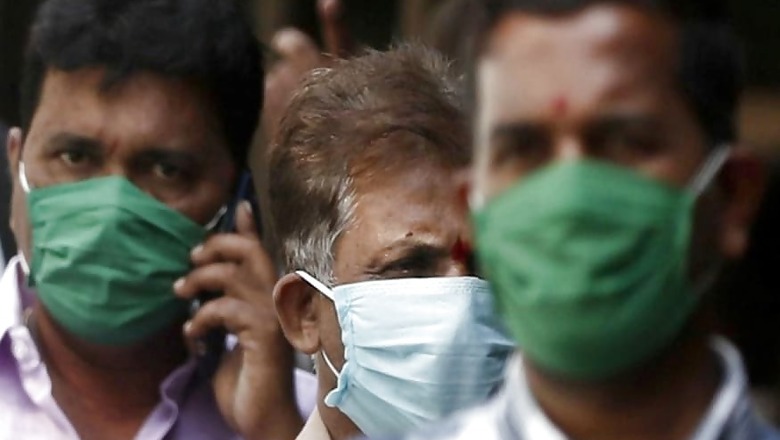
views
New Delhi: The 21-day lockdown announced in the country by Prime Minister Narendra Modi will help in slowing down the Covid-19 outbreak. However, if this time is not used to shore up the country’s resources to tackle the post-lockdown period, the purpose will be defeated, warned Dr T Jacob John, former emeritus professor of Christian Medical College, Vellore, and former head of the Centre for Advanced Virology Research, Indian Council of Medical Research.
The veteran virologist, who helmed India’s scientific investigation into the spread of HIV, spoke to News18.com on issues ranging from the government’s approach, the lockdown and its impact, Covid-19 cases and the inadequacies in India’s SARS-CoV-2 testing strategy. Edited excerpts:
On the government’s approach so far
The government started off by pretending as though it is very confident and everything is under control. They thought they could do whatever is necessary as they have managed everything in the past. They did not prepare for public-private partnership in this fight. Government health institutions were projected to be sufficient to fight this epidemic. It was a flaw in our approach that we did not go through public-private participation although we have a big private sector establishment.
The reason I suspect was the lack of understanding of the inter-phase between public health (exemplified by the government responses including testing strategy) and healthcare which requires public-private partnership. Healthcare also has testing needs, rather different from public health testing.
‘Our testing strategy was not people friendly’
The mechanism that they established for testing was not people friendly. It was government institution friendly. If you want to get tested, we will decide when you should be tested, that was the approach. Testing was monopolised only for public health, testing was not made available for healthcare.
‘The wolf is inside the door and it will create havoc, prepare for it’
Over 600-odd cases that we have seen, (they were) tested because they had foreign travel connection or contact history. These 600 plus cases tell us that the wolf is inside the door and that wolf is going to create havoc. What havoc it will create is unpredictable and unimaginable. But there will be havoc. Every other country went through havoc.
We are doing this unprecedented lockdown to delay the havoc. So, what can we gain? You have time to make your defence and offence stronger. The Army can erect hospitals in Wankhede Stadium, Jawaharlal Nehru Stadium or the cricket stadium in Chennai.
On March 12, when the Cabinet secretary called a meeting to plan, the Army was present, ITBP was present. Have they been asked about such hospitals? They can make a bridge in 24 hours, they can also make a hospital in 24 hours. We were watching China make a hospital. We don't want that, we need only tents, so we can protect ourselves from vagaries of weather
When the havoc comes, we would have to be better prepared, the havoc will come, it has to come, because this virus is a contagious virus. A normal human contact, social contact, is enough for its spread.
‘The people are not the enemy, tell them about preparations honestly’
People have been pictured as part of the problem. Have you informed the public with a coherent message that this is a national emergency? Have you told them about the projected number of cases we will see, the number of beds available in intensive care units or the shortage, the shortage of personal protective equipment, availability of masks or ventilators? There are many things that the public needs to be told honestly.
On how the lockdown will help and the flipside of undetected cases stuck in lockdown
The lockdown is to slow down the spread. What would have happened in the next three weeks in the community is reduced to a smaller proportion because of the lockdown. We are buying three weeks to slow down the epidemic.
However, there is a flipside. Don’t you think there are some infected people already in the country who are still not detected? They will be in their families, they might be asymptomatic and they will be spreading infection to their parents, grandparents, wives and children. Have they been told anything? If not, during these 21 days a lot of people in these tiny family clusters could have outbreaks. Has the government prepared them on how to behave within their homes? On how to minimise interpersonal body touch and maintain safe distance if a family member is unwell?
Have people been told they should contact some kind of authority to check if their symptoms suggest possible Covid-19 without stepping out of home, under curfew conditions and on how to get their samples collected?
If all this has been communicated and it is being followed, then these 21 days will be highly effective in both slowing down the transmission in the community, picking up infections, quarantining and isolating them. If this is not done, the 22nd day, the transmission will restart in the community. In another three weeks, you will see a huge rise in numbers. That is my personal worry.


















Comments
0 comment